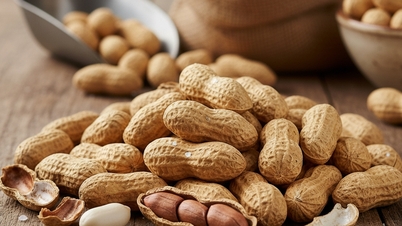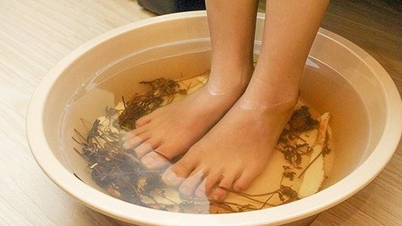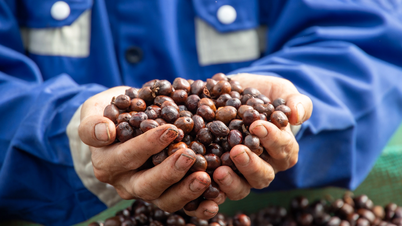According to Dr. Hardik Patel, a nephrologist at Manipal Hospital (India), the kidneys are responsible for filtering waste, balancing minerals like sodium and potassium, and producing urine. When the body is well hydrated, the kidneys function more effectively; urine becomes diluted and waste is easily eliminated.
Some studies have shown that people who drink more water have a slower decline in kidney function over time. However, scientists still need more clinical trials to determine the specific amount of water that helps protect the kidneys, according to the health news site Everyday Health.

Drinking enough water is especially effective in preventing kidney stones and reducing the risk of recurrence.
Photo: AI
So does drinking lots of water help people with kidney disease?
If chronic kidney disease is caused by diabetes or high blood pressure, controlling these conditions will do more to protect the kidneys than simply drinking more water, Dr. Patel emphasized. Reducing salt, maintaining healthy blood pressure, controlling blood sugar, and reducing protein leakage in the urine remain the most important measures.
Dr. Patel says drinking enough water is especially effective in preventing kidney stones and reducing the risk of recurrence. Increasing water intake also helps reduce urinary tract infections in women, especially those who regularly drink very little water.
Is drinking too much water harmful?
Dr. Patel warns that drinking more than you need can dilute your blood sodium and cause hyponatremia, a dangerous condition. For people with heart failure, advanced chronic kidney disease, cirrhosis, or certain endocrine disorders, drinking too much water can cause swelling, high blood pressure, and worsening shortness of breath.
How to drink water is good for the kidneys?
Dr. Patel recommends relying on body signals. Thirst is a reliable sign in healthy people. Urine color is also an indicator to rely on: Pale yellow or straw-colored urine indicates adequate hydration; dark color and strong odor indicate dehydration. Daily urine output can range from 800 ml to 2,000 ml, depending on weather, illness, exercise, etc.
Finally, Dr. Patel emphasizes again: Many people mistakenly think "drinking more water is better," when the most important thing is to listen to thirst and monitor urine color, according to Everyday Health.
Source: https://thanhnien.vn/bac-si-uong-nuoc-the-nao-moi-tot-cho-than-185251124215309987.htm





![[Photo] Close-up of Ba Ha River Hydropower Plant operating to regulate water to downstream](/_next/image?url=https%3A%2F%2Fvphoto.vietnam.vn%2Fthumb%2F1200x675%2Fvietnam%2Fresource%2FIMAGE%2F2025%2F11%2F25%2F1764059721084_image-6486-jpg.webp&w=3840&q=75)

![[Photo] Prime Minister Pham Minh Chinh receives Governor of Gunma Prefecture (Japan) and Special Advisor to the Japan-Vietnam Friendship Parliamentary Alliance](/_next/image?url=https%3A%2F%2Fvphoto.vietnam.vn%2Fthumb%2F1200x675%2Fvietnam%2Fresource%2FIMAGE%2F2025%2F11%2F25%2F1764066321008_dsc-1312-jpg.webp&w=3840&q=75)








![[Video] More and more foreigners come to Vietnam for medical treatment](https://vphoto.vietnam.vn/thumb/402x226/vietnam/resource/IMAGE/2025/11/25/1764075012380_10-nam-kham-chua-benh-403-jpg.webp)







































![[Answer] Should I install an elevator for an old renovated house?](https://vphoto.vietnam.vn/thumb/402x226/vietnam/resource/IMAGE/2025/11/25/1764039191595_co-nen-lap-thang-may-cho-nha-cai-tao-cu-khong-04.jpeg)















































Comment (0)